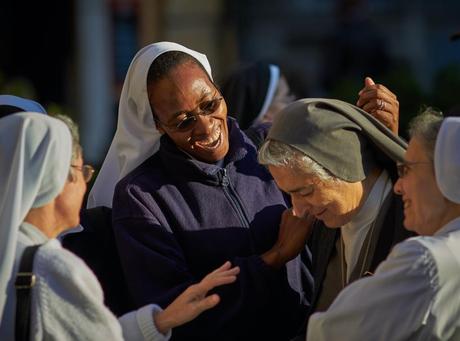I’ve taught a course in the Psychology of Religion and Spirituality for about 20 years. As part of this course, I often invite speakers to share their religious and spiritual life stories and insights with the class. One of the most provocative perspectives ever shared came from a Jewish speaker. To paraphrase, he would say:
I know many of you consider yourselves more spiritual than religious, and I know there are many benefits to personal spirituality. However, I have a different take on this. I believe religion is better than spirituality. And I believe this is increasingly so.
The Meaning of “Religion” and “Spirituality”
Although these concepts prove extraordinarily difficult – if not impossible – to adequately define, let me clarify terms as much as possible. In general, religiousness entails behavior concerning the Sacred consistent with what an institution prescribes. Spirituality, in contrast, involves an autonomous question for what is true and meaningful regarding the Sacred, whether inside or outside an institutional context.
Thus, religiousness and spirituality are different but overlapping constructs. Religiousness involves action that harmonizes with a group’s teachings and customs to a greater extent. Spirituality focuses more on an individual’s personal and experiential quest. Common to both religiousness and spirituality is the Sacred: something that lasts forever or that evokes awe or reverence.
The Trend Toward Spirituality
Various surveys in the United States regularly ask respondents to select which of four options best describes them: (1) both religious and spiritual, (2) spiritual but not religious, (3) religious but not spiritual, and (4) neither religious nor spiritual. Results consistently show how respondents are most likely think of themselves as “both religious and spiritual.” However, individuals in these studies increasingly identify as “spiritual but not religious.” For instance, in nationally representative surveys of American adults from the Fetzer Institute, those indicating they were more spiritual than religious rose from 18.5% in 1998 to 33.6% in 2020.

Five Unique Benefits of Religion
Some might consider the notion that religion has unique psychosocial benefits – compared with personal spirituality – offensive or, maybe ironically, “sacrilegious.” However, particularly at this moment in time, in our culture, consider the following:
- Religion involves community. That is, religiousness includes engagement with a group of people that, to some extent, share similar values and behavior. Membership and participation in various kinds of groups have been on the decline since the 1960s in the United States and other developed countries. With increasing individualism, isolation and loneliness are on the rise and often are identified as driving forces behind rising rates of psychological disorders. Humans demonstrate a strong need to belong. Religion helps meet this need.
- Religion exposes people to different perspectives. Religious communities can include individuals that can be surprisingly different from each other. In fact, religious gatherings may provide an increasingly rare venue in our society to bring people from various kinds of backgrounds together. For example, religious congregations often mix wealthier people with poorer people. When this occurs, individuals may be forced to stretch their perspectives or wrestle with insights they may not have identified on their own.
- Religion involves meaningful rituals. Religious institutions carry with them history and rituals they pass down from generation to generation. As individuals connect with what some may perceive as “ancient,” they can experience a sense of deep meaning or reverence. In addition, rituals may be a stabilizing influence in people’s lives by which they can mark time or personal history. Rituals can be especially welcome during times of life transition, such as birth, death, marriage, and other “rites of passage.”
- Religion often includes music. There aren’t many opportunities for local communities to sing, play, or listen to live music together, but religious communities often provide one such venue. Furthermore, sacred music may have its own unique benefits, as can be seen by individuals who become moved to the point of tears, chills, or goosebumps during such musical experiences. In this way, worshipful music may be a potent source of awe for many people.
- Religion emphasizes collective action. There may be important benefits to being a part of an institution that prioritizes action. It may make it easier to get involved in a prosocial cause that can make a significant difference in society. As Muslim civic leader Eboo Patel points out in his TED talk, religions played a vital role in creating early hospitals, health centers, schools, and homes for the elderly and those with special needs.Individuals who join such efforts may feel greater purpose in life. They may help make the world, in fact, better.
None of this means there aren’t also unique benefits to spirituality. For instance, research shows personal spiritual practices related to meditation, awe, forgiveness, compassion, and gratitude increase well-being.
None of this means spiritual but not religious people can’t involve themselves in meaningful community, new perspectives, ancient traditions, shared music, and prosocial action.
None of this also means religiousness can’t be problematic. For example, religious communities – particularly fundamentalist communities – can be insular, antiquated, legalistic, and damaging.
Finally, none of this means religions have no room for improvement. There are many ways religions could become more effective at nurturing belonging in community, addressing diversity both within and outside of their groups, communicating about the meaningfulness of their traditions, facilitating engaging worship, and identifying ways to help improve the world for all.
The Need to Congregate
Having said all this, religions do offer members unique psychosocial benefits. As Katherine May summarizes in her beautiful memoir, “Wintering:”
“The loose communities that we find in spiritual or religious gatherings were once entirely ordinary to us, but now it seems more radical to join them, a brazen challenge to the strictures of the nuclear family, the tendency to stick within tight friendship groups, the shrinking away from the awe-inspiring. Congregations are elastic, stretching to take in all kinds of people and bringing up unexpected perspectives and insights. We need them now more than ever.”
Advertisement